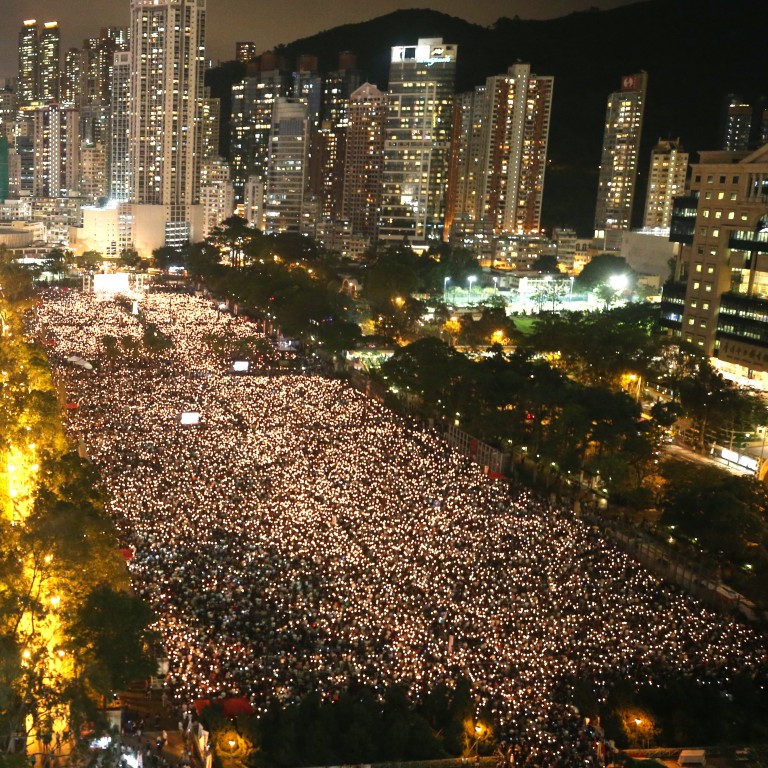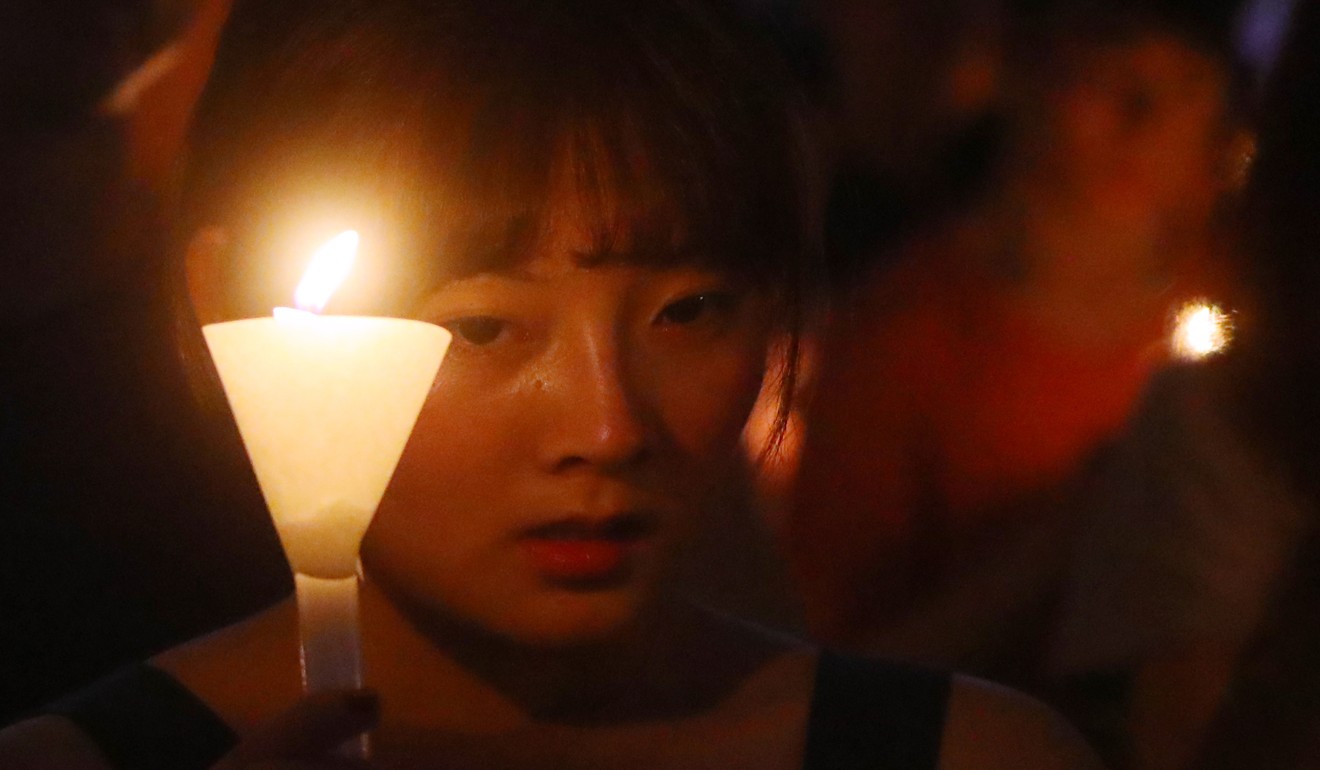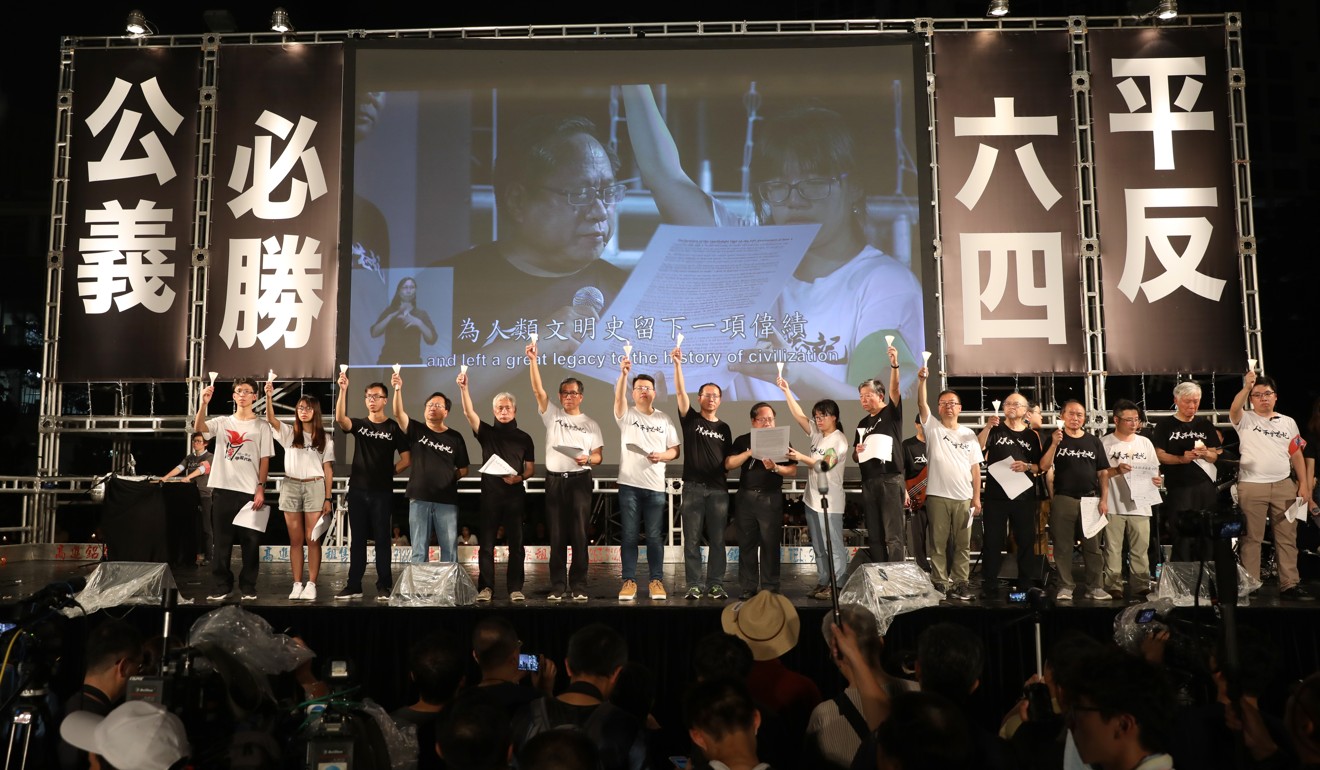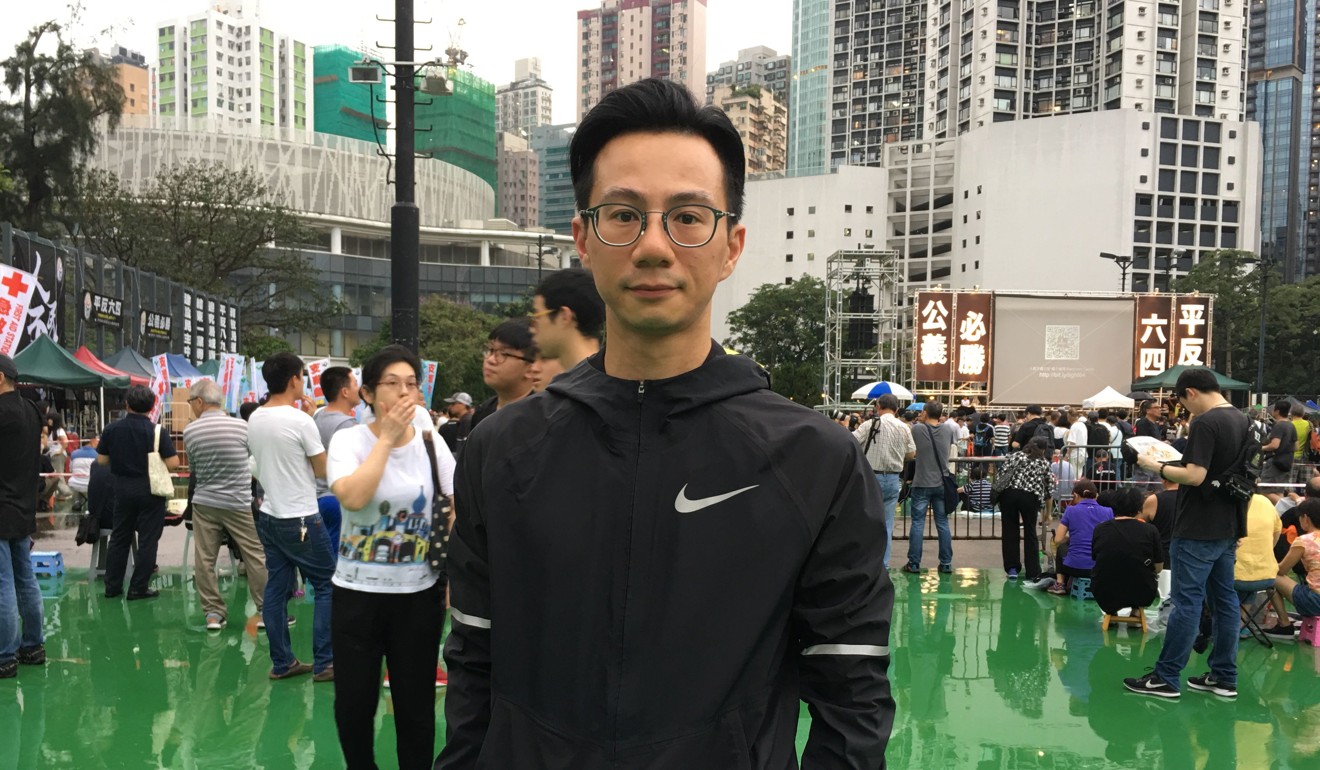
‘Record turnout of over 180,000’ at Hong Kong candlelight vigil to mark Tiananmen crackdown’s 30th anniversary but for many, city’s controversial extradition bill was extra spur
- Many of those in Victoria Park crowd felt compelled to attend the annual vigil to say ‘no’ to contentious bill
- At its peak, the crowd spilled over to lawn areas and park’s running paths, as latecomers kept streaming in
While they remembered the bloodshed that occurred 30 years ago in Beijing’s Tiananmen Square, many of those in the record-breaking crowd in Victoria Park on Tuesday said they also felt compelled to attend the annual vigil to say “no” to the contentious bill, which would allow the transfer of criminal suspects to mainland China.
Critics of the bill fear people could face vague charges and unfair trials for political reasons – such as attending the June 4 commemorations.
The turnout for this year’s anniversary of the June 4, 1989 crackdown was more than 180,000, according to organiser Hong Kong Alliance in Support of Patriotic Democratic Movements of China. Police said 37,000 attended at the peak.
“We included the theme of the extradition bill this year because it is about sending Hong Kong people to a dictatorial regime,” alliance vice-chairman Richard Tsoi Yiu-cheong said.
“Anti-dictatorship is also the spirit of the 1989 student movement.”
Tens of thousands of participants, many of whom were dressed in funeral black and white and waving candles, covered an area of six soccer pitches, turning the park into a sea of candlelight.
Journalist finds Hong Kong activist he filmed at Tiananmen 30 years ago
On the stage hung two banners that declared “Justice will prevail” and “Vindicate June 4”. As the crowd chanted “People will not forget” and “No rendition to China”, the roar echoed through the glitzy streets of the Causeway Bay shopping district.

The extradition bill, if passed, will allow the transfer of fugitives to jurisdictions the city does not have an extradition deal with, including the mainland and Taiwan.
At the vigil’s peak, the crowd spilled over to the lawn areas and the park’s running paths, as those who missed the 8pm start kept streaming in.
Many more who could not make it into the park stood outside its fences hoping for a glimpse of the events inside.

Among the crowds was Calvin Lam, 18, attending for the first time with two friends.
“I knew about June 4 before but not profoundly. I find the current situation has become more urgent now so I want to come out and express my concerns,” said Lam, referring to the proposed extradition law.
“If it is passed, the judicial system of Hong Kong will collapse. And this year may be the last we can organise and attend such a large-scale event to support the democracy fighters.”
Teachers keeping memory of Tiananmen Square alive in minds of young
Ivan Chan, 36, attended alone. He has joined the event each year for more than a decade.
He said the extradition bill made him feel it was necessary to attend this year, as he also feared it might be the last time Hongkongers could mark the June 4 crackdown freely in the city.
Emotions have been running high in Hong Kong since the government unveiled the plans to amend the city’s fugitive laws in February.

The bill, to be tabled to the Legislative Council next Wednesday for its second reading, is opposed by democracy activists, human rights groups, lawyers, businesspeople and diplomats.
Pro-democracy activists are planning a major demonstration on Sunday to protest the bill.
The June 4 vigil is the only mass public gathering on Chinese soil to remember the 1989 crackdown, in which hundreds – possibly more than 1,000 – protesters, died.
Organisers said the vigil’s previous peak years, 2012 and 2014, attracted 180,000 people, while in 2018, 115,000 attended.
The contrast between a security clampdown in Beijing on Tuesday and the emotional, two-hour vigil highlighted the special freedoms the people of Hong Kong enjoy under the “one country, two systems” policy that allows the city Western-style civil liberties.
The Chinese government maintained that the crackdown was necessary to ensure social stability.
Thirty years after the bloodbath, memories of the violence remained ingrained.
Some participants wept quietly when footage of the 1989 student movement was shown on a large video screen on the stage.

Andrew Shum Wai-nam, 32, has been coming to the vigil for 19 consecutive years. For the past several years, he worked at the event as a volunteer.
“The importance of coming to the vigil is that we are telling the world that we refuse to forget,” he said.
A 31-year-old blind man, who wished to be identified only as Ah Fai, said that he had made the effort to attend this, his second-ever Tiananmen vigil, despite his disability.
“I feel like I cannot treat myself as an outsider,” he said. “If I remain silent, or I choose to forget, I am no different than an accomplice of the Chinese government.”
Joining their fellow Hong Kong counterparts were some mainlanders.
How Tiananmen crackdown left a deep scar on China’s military psyche
A 22-year-old law student from Shenzhen, who gave his name as Peter only for fear of getting into trouble when he returned home, took part for the second year in a row.
He said he found out about the event from a friend who managed to tunnel through the country’s sophisticated barrier of online filters to access the global internet.
He also brought his girlfriend this time. “She is also a law student and I believe students like us should know about this. Across the border, we don’t have occasions like this.”
Reporting by Jeffie Lam, Phila Siu, Linda Lew, Su Xinqi, Sum Lok-kei, Athena Chan, Rachel Yeo, Alvin Lum and Ng Kang-chung

